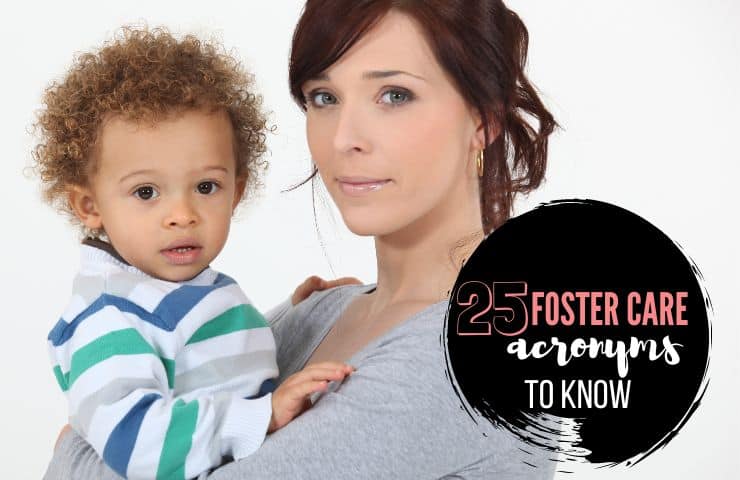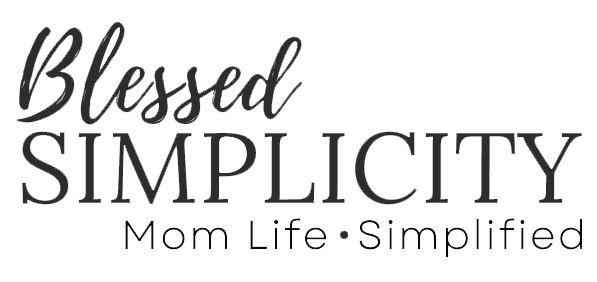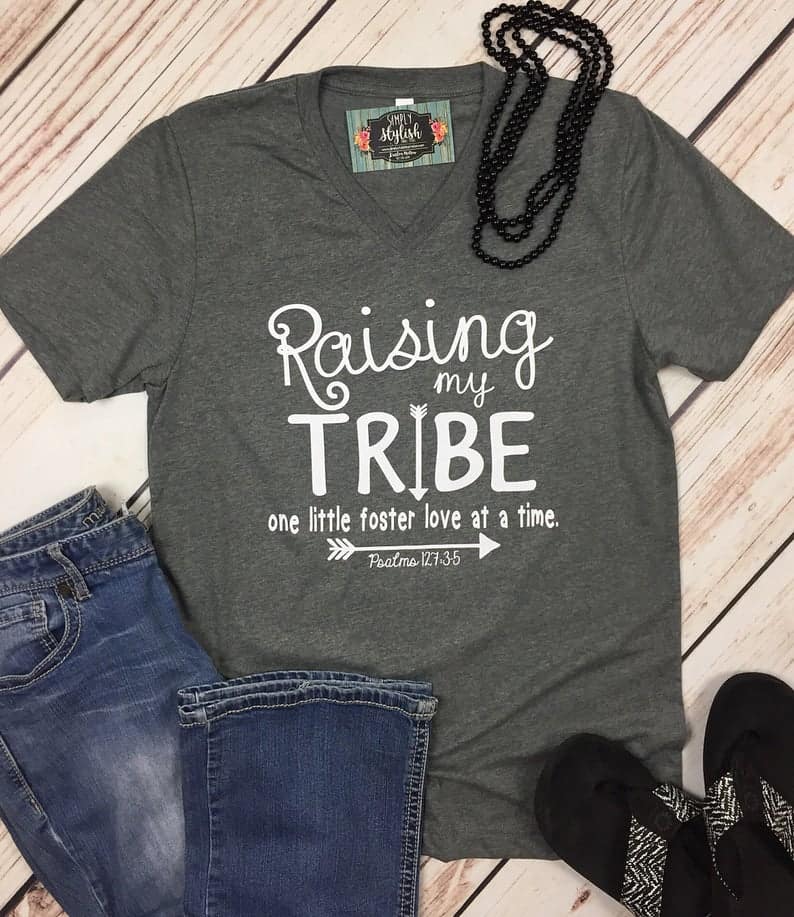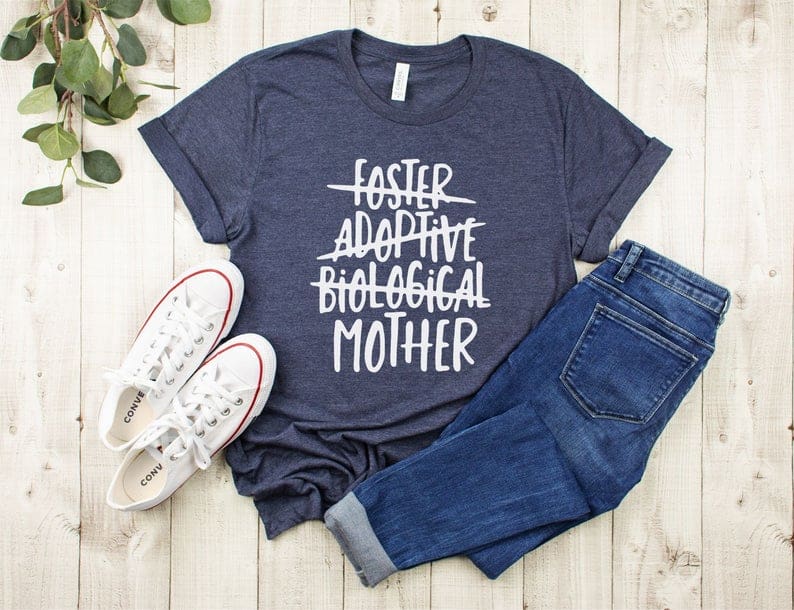Acronyms Used in Foster Care
If you’re considering becoming a foster parent, or are new to the system, it’s helpful to know some of the acronyms used in foster care. This guide will help you understand what all those letters stand for and give you a better idea of what to expect when navigating the foster care system. Being educated and prepared is one of the best tips for foster parents!
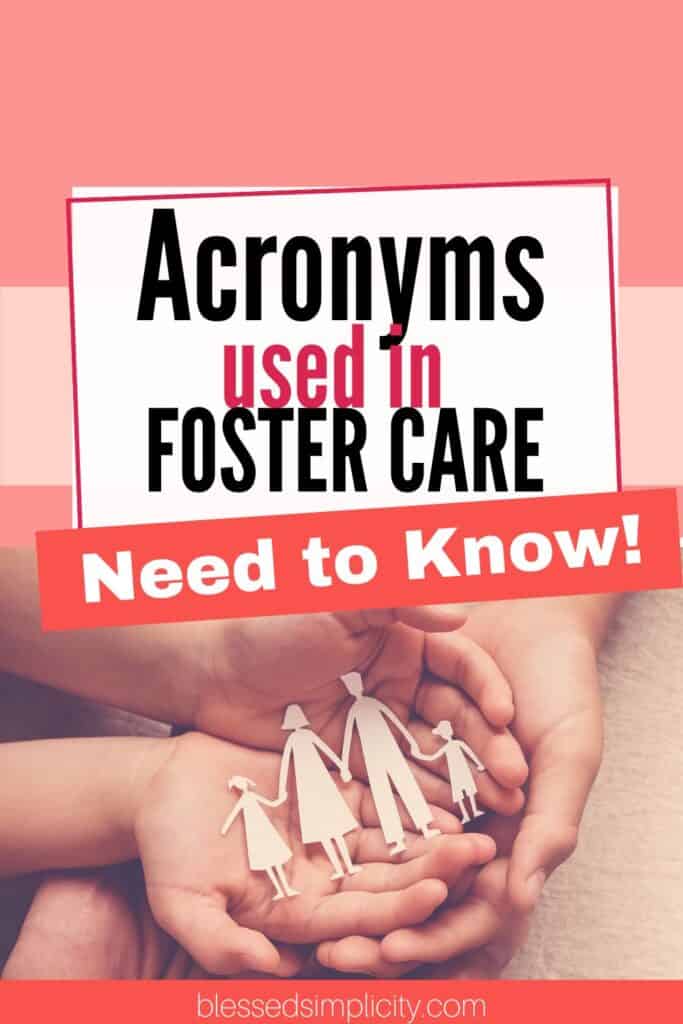
*This post contains affiliate links. Please see the full disclosure policy below.
Foster care is a complex system with its own language. Make sure you’re up to date on the acronyms used in foster care so you can navigate it with confidence. This list defines some of the most common acronyms and will help make you an expert on foster care speak!
Acronyms Used in Foster Care
There are a lot of acronyms used in the foster care system, which can be confusing for new foster parents. Here are some of the most common acronyms and what they mean:
CFS: Child and Family Services
This is the government agency that oversees the foster care system.
CPS: Child Protective Services
CPS is a governmental agency in many US states responsible for investigating reports of abuse and neglect of children.
DSS: Department of Social Services
DSS is a state agency that is in charge of social programs, including those for children in foster care.
CAS: Children’s Aid Society
This is a private agency that works with CFS to provide foster care services.
FBA: Family Based Assessment
This is an assessment of a potential foster family’s home and lifestyle, to ensure it is suitable for fostering.
SW: Social Worker
The social worker is the main point of contact for the foster family, and is responsible for placing children in homes and ensuring their needs are met.
PMK: Primary Carer/Parent
The PMK is the main caregiver for the child in foster care, and has primary responsibility for their care.
CP: Children in Placement
This refers to all the children who are currently living in a particular foster home.
GAL: Guardian ad litem
The Guardian ad litem is a lawyer appointed by the court to advocate for the best interests of a child and to ensure that the child’s concerns and preferences are effectively advocated in the case of visitation or custody disputes between parents, or the state, parents and foster parents.
CASA: Court Appointed Special Advocate
CASAs are community volunteers, just like you, who stand up and speak out to help children who have been abused and neglected.
THP: Trial home placement
This is the trial of the child moving back home. Many agencies stay involved with birth family for three months after the child goes back home.
CFTM: Child and Family Team Meeting
This is a scheduled meeting of everyone who is involved in the child’s case. They happen at least once per quarter. Plans and progress of the child are discussed. Functions of CFTM are understanding, assess the situation tracking the plan, the plan is signed by the judge, it is a legal plan and that judge must sign off. Discussions of the meeting must be kept confidential.
EPSDT: Early Periodic Screening Diagnostic & Testing
The Early and Periodic Screening, Diagnostic and Treatment (EPSDT) benefit provides comprehensive and preventive health care services for children under age 21 who are enrolled in Medicaid. EPSDT is key to ensuring that children and adolescents receive appropriate preventive, dental, mental health, and developmental, and specialty services.
IEP: Individualized Education Plan
An IEP lays out the special education instruction, supports, and services a student needs to thrive in school.
A foster parent may act as a parent for special education purposes for a child in their care if these conditions exist:
- The biological or adoptive parent’s authority to make educational decisions for the child have been taken away by a court; and
- The foster parent has no interest that would conflict with the interests of the child.
RC: Resource Coordinator
The Resource Coordinator is similar to your case worker when you are fostering through a third party agency. They work with the foster parents.
MEPA/IEPA: Multi Ethnic Placement Act/Inter Ethnic Placement Act
The Multi-Ethnic Placement Act/Inter-Ethnic Placement Act of 1996 specifies that
an agency involved in adoption or foster care placements:
- May not categorically deny to any person the opportunity to become an
adoptive or foster parent on the basis of race, color or national origin of the
adoptive/foster parent, or the child involved. - May not delay or deny the placement of a child for adoption/foster care, or
otherwise discriminate in making placement decisions on the basis of race,
color, national origin of the adoptive/foster parents, or the child involved.
AFCARS: Adoption and Foster Care Analysis and Reporting System
The Adoption and Foster Care Analysis and Reporting Systemis a federal data collection system that tracks children who are in the foster care system.
DCFS: Department of Children and Family Services
The Department of Children and Family Services is the state agency responsible for overseeing the foster care system.
FAP: Foster Care and Adoption Program
The Foster Care and Adoption Program is the state program that licenses foster parents and placing agencies.
FIA: Family Independence Agency
The Family Independence Agency is the state agency responsible for providing financial assistance to families in need.
IFW: Intensive Family Wraparound
Intensive Family Wraparound is a program that provides intensive services to families who are at risk of having their children placed in foster care.
PAS: Permanent Absolute Supervision
Permanent Absolute Supervision is the highest level of supervision that a child can be placed under in the foster care system.
SACWIS: Statewide Automated Child Welfare Information System
The Statewide Automated Child Welfare Information System is the computer system that tracks children in the foster care system.
TPR: Termination of Parental Rights
Termination of Parental Rights is when a parent’s legal rights to their child are terminated by court order. This usually happens after several unsuccessful reunification attempts.
UAC: Unaccompanied Alien Child
Unaccompanied Alien Child is a term used to describe a child who has been apprehended by immigration officials without their parent or guardian.
If you’re considering becoming a foster parent, or are new to the system, it’s helpful to know some of the acronyms used. This guide will help you understand what all those letters stand for and give you a better idea of what to expect when navigating the foster care system. Being educated and prepared is one of the best tips for foster parents!
If you have questions about Foster Parenting
You can join my Foster Care and Adoption Questions and Answers Facebook Group here and you can join my email list below for free resources and encouragement.
